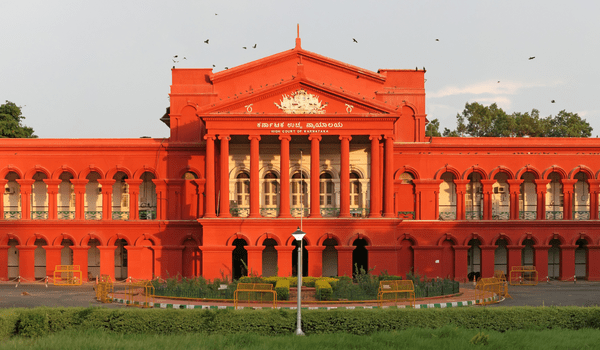
Karnataka High Court Suggests Age Limits for Social Media Users A Legal Perspective In a significant development, a Karnataka High Court bench, consisting of Justices G Narender and Vijaykumar A Patil, has recommended that the Indian government consider establishing age limits for social media users in the country. This suggestion emerged during a hearing of an appeal filed by social media platform X. In this article, we delve into the legal implications, potential benefits, and concerns surrounding the idea of imposing age restrictions on social media users in India.
The Legal Context
The Karnataka High Court’s suggestion to consider age limits for social media users raises several legal considerations:
Fundamental Rights: Any such proposal must be carefully examined in the context of fundamental rights, including the right to freedom of speech and expression guaranteed under Article 19(1)(a) of the Indian Constitution. Any restriction on these rights must meet the criteria established by the courts, including being reasonable and in the interest of the sovereignty and integrity of India.
Privacy and Data Protection: Age restrictions would necessitate the collection and verification of users’ age-related data, raising questions about data privacy and security. Regulations would need to be in place to ensure the protection of sensitive user information.
International Comparisons: It would be worthwhile to consider international practices regarding age limits on social media. Countries like the United States have legislation such as the Children’s Online Privacy Protection Act (COPPA) that governs online data collection from children under the age of 13.
Social Media Platform Liability: The legal implications of age restrictions may extend to the responsibility of social media platforms in verifying user ages and ensuring compliance. They may face legal consequences if underage users gain access due to inadequate age verification mechanisms.
Benefits of Age Limits
Child Safety: Implementing age restrictions can help protect minors from exposure to age-inappropriate content and interactions on social media platforms.
Online Bullying and Predation: Age verification can assist in identifying potential perpetrators of online bullying or predatory behavior towards minors.
Privacy Protection: Age limits can help in safeguarding the personal data and privacy of minors, who may not fully comprehend the implications of sharing personal information online.
Concerns and Challenges
Enforcement: Enforcing age restrictions on a vast and diverse user base is a logistical challenge. Verification processes must be robust and secure.
Freedom of Expression: Age restrictions should be carefully balanced with the right to freedom of expression, particularly for older minors who may use social media for educational or constructive purposes.
Impact on Businesses: Age restrictions could impact businesses and content creators who rely on a broad user base, potentially affecting advertising revenue and the availability of certain services.
The Karnataka High Court’s suggestion to explore age limits for social media users is a significant development that brings up complex legal, ethical, and practical considerations. While the safety of minors and data privacy are essential concerns, any regulatory action must carefully balance these objectives with the fundamental rights of users and the interests of businesses. Establishing a comprehensive framework that addresses these concerns is crucial, and such a framework should be developed through a consultative and transparent process involving stakeholders from various sectors. The potential implementation of age limits on social media in India will undoubtedly continue to be a topic of discussion and scrutiny in the coming months.

